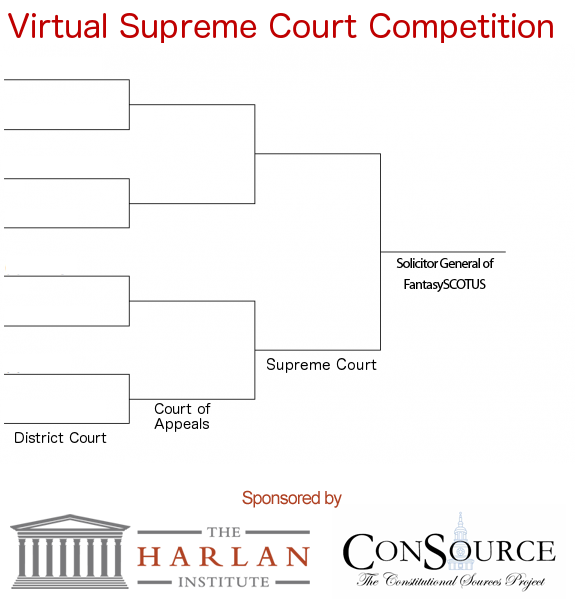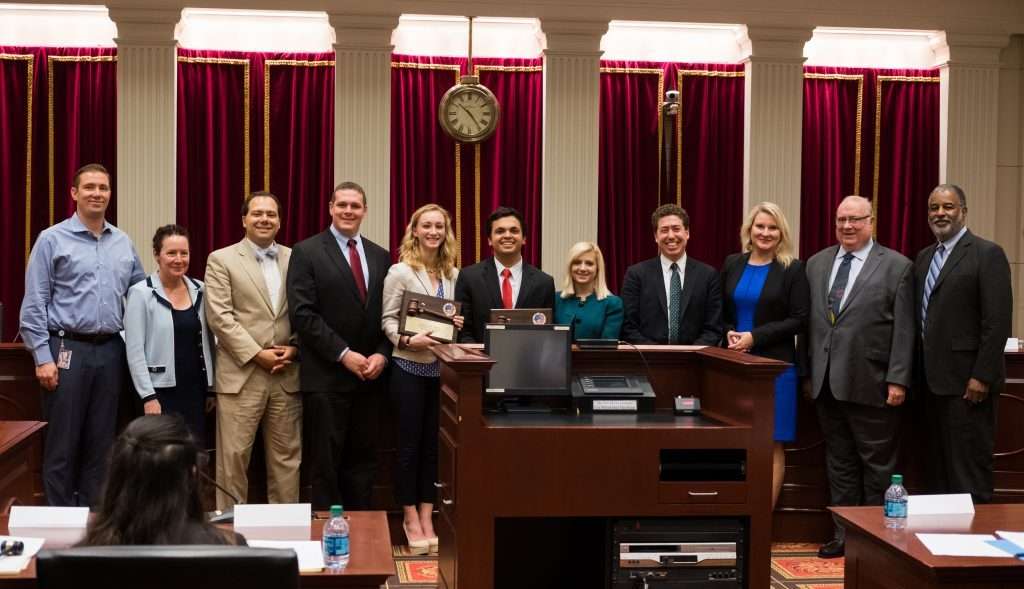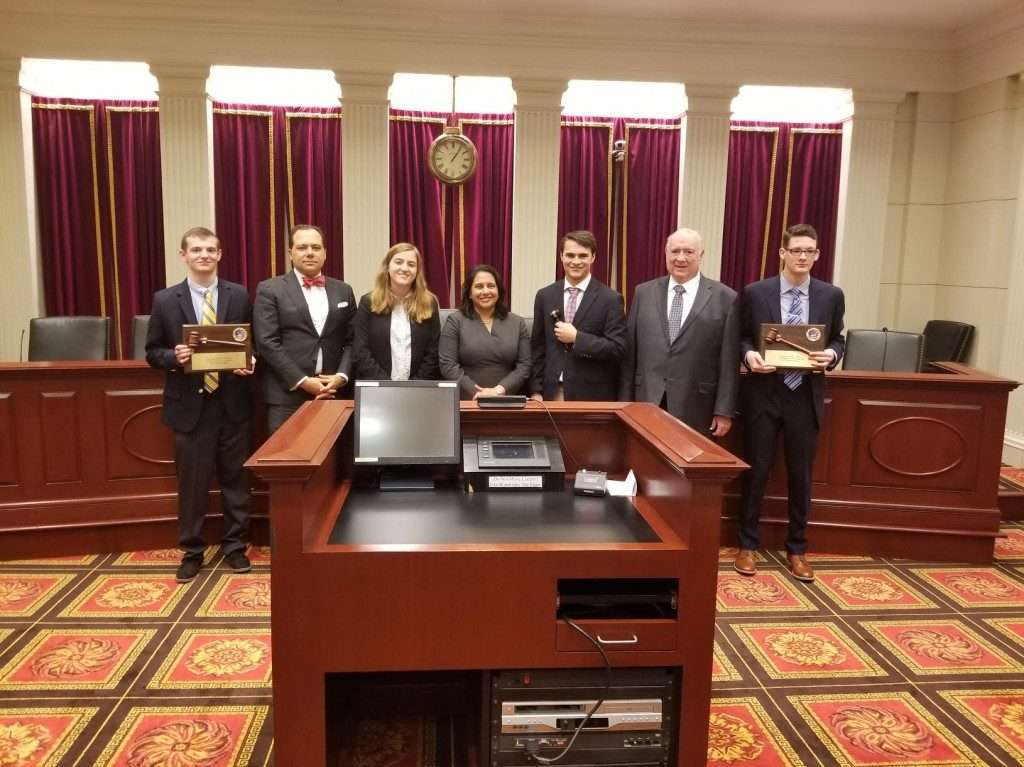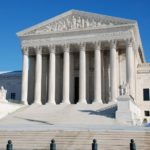The Volokh Conspiracy
Mostly law professors | Sometimes contrarian | Often libertarian | Always independent
The 2019 Harlan Institute-ConSource Virtual Supreme Court
High School Students Can Write Briefs and Make Oral Arguments for Espinoza v. Montana Department of Revenue
The Harlan Institute and The Constitutional Sources Project (ConSource) announce their Seventh Annual Virtual Supreme Court Competition. This competition offers teams of two high school students the opportunity to research cutting-edge constitutional law, write persuasive appellate briefs, argue against other students through video chats, and try to persuade a panel of esteemed attorneys during oral argument that their side is correct. This year the competition focuses on Espinoza v. Montana Department of Revenue.
The Question
Resolved:
The Rules
This competition has two stages, which mirror the process by which attorneys litigate cases.
 Stage One: The Briefing and Oral Arguments
Stage One: The Briefing and Oral Arguments
A team of two students will be responsible for writing an appellate brief arguing for either the petitioner or the respondent, as well as completing an oral argument video. The brief and video will be due by February 21, 2020.You can see the winning briefs from 2013, 2014, 2015, 2016, 2017, 2018, and 2020.
Stage Two: The Tournament
The Harlan Institute and ConSource will select the top teams supporting the Petitioner and Respondent, and seed them for the oral argument semifinals on April 4, 2020. All teams will compete in a virtual oral argument session over Google+ Hangout judged by the Harlan Institute and ConSource. Only teams that submit briefs that fully comply with all of the rules will be considered for oral argument. You can see the video from the 2013, 2014, 2015, 2016, 2017 2018, and 2019 competitions.
The final round of the Virtual Supreme Court Competition will be held in Washington, D.C. The Harlan Institute and ConSource will sponsor the top two teams, and their teachers, for a trip to Washington, D.C. in April 2019 to debate in front of a panel of expert judges, including lawyers, university level debate champions, and legal scholars.



The Prizes
 Grand Prize - The Solicitors General of FantasySCOTUS
Grand Prize - The Solicitors General of FantasySCOTUS
The members of grand-prize winning team, the Solicitors General of FantasySCOTUS, and their teacher, will receive a free trip, including airfare and one night of hotel accommodations, to New York to attend the ConSource Constitution Day celebration in September 2020. This offer is open to U.S. residents only.
Second Prize
Members of the runner-up team will each receive an iPad Mini.
Third Prize
Members of the third and fourth place teams will each receive a $100 Amazon.com Giftcard.
Honorable Mention
Each student that advances to the semifinals will receive a copy of Professor Blackman's book, An Introduction to Constitutional Law.
Instructions
Coaches can register their teams at the Institute of Competition Sciences. Read the problem, and get started! Good luck.
Please send any questions to info@harlaninstitute.org or info@consource.org.
Editor's Note: We invite comments and request that they be civil and on-topic. We do not moderate or assume any responsibility for comments, which are owned by the readers who post them. Comments do not represent the views of Reason.com or Reason Foundation. We reserve the right to delete any comment for any reason at any time. Comments may only be edited within 5 minutes of posting. Report abuses.
Please to post comments


I'm not fond of this portion of the question. "simply because the program affords students the choice of attending religious schools?"
"because it might work toward establishment of a state religion" would be equally biased on the other side.
I'm sure the organizers could have found a more neutral wording. Shame on them for not doing so.
Everything after "First Amendment" is literally the exact wording of the Question Presented on the Supreme Court docket for the case. And the changes to the first part simply limit the scope to one issue, so I have a hard time finding anything nefarious.
And to add on to what jph12 says -- correctly, I think -- the Question Presented on the Supreme Court docket usually comes from the petition asking the Supreme Court to hear the case. Which means it comes from one side in the case, so it is inherently not neutral (and indeed a good advocate will pretty much always phrase the question so that the obvious answer is the one his side wants). The Supreme Court will sometimes pick only one of the petitioner's questions to answer, but for the most part it tends not to alter them.
In theory the Supreme Court could reword these things to be more neutral, but seeing as doing so doesn't actually accomplish anything -- they can relatively flexibly interpret a presented question even if the question is worded partially -- it's not really a good use of their time.